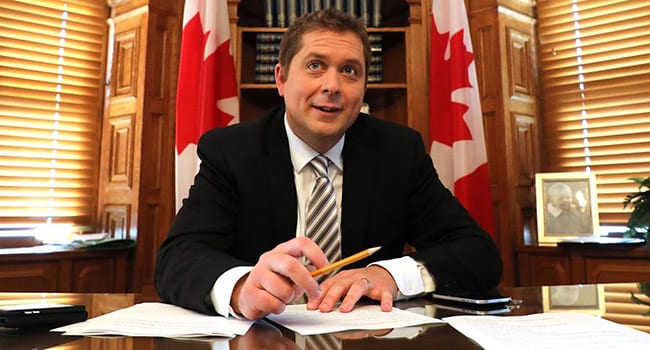 Canada has been involved in a political crisis for nearly three weeks.
Canada has been involved in a political crisis for nearly three weeks.
Nationwide protests by radical activists siding with the Wet’suwet’en tribe’s hereditary chiefs against the construction of the Coastal GasLink pipeline in northern B.C. are ongoing.
Some politicians were blocked from entering provincial legislatures or, in the case of Deputy Prime Minister Chrystia Freeland, attending a meeting. Blockades against Via Rail and Canadian National Railway trains have led to job losses – and stopped the flow of many goods and services.
This is one of those moments where a world leader needs to show his or her mettle in bringing a difficult crisis to a natural conclusion. Unfortunately, Canada has a weak and ineffective leader, Prime Minister Justin Trudeau, and he’s failed miserably in this respect.
Trudeau spent most of his time during the Wet’suwet’en solidarity blockades travelling abroad. He shook hands with totalitarian politicians like Iranian Foreign Minister Mohammad Javad Zarif in hopes of getting Canada a meaningless UN Security Council seat. He even planned to keep a trip to the Barbados, which was part business and part pleasure, right up until Feb. 16.
The fact that Trudeau didn’t have the common sense to cancel his international trips, as most leaders would have done, was bad enough. What he did at home was even worse.
The PM arranged to meet with Canada’s other party leaders on Tuesday to discuss this blockade and figure out next steps. This was a good idea in theory and would have shown that Canadian politicians were temporarily putting aside their political differences for the good of the nation.
One leader didn’t attended this meeting, however. Trudeau refused to invite Conservative Leader Andrew Scheer.
Scheer was displeased with the tone of Trudeau’s speech in Parliament. It was clear the federal government wouldn’t take action to bring an end to this politically and economically crippling blockade. It wanted everyone to have patience.
“There are those who would want us to act in haste, who want us to boil this down to slogans and ignore the complexities, who think that using force is helpful,” Trudeau said. “It is not. Patience may be in short supply and that makes it more valuable than ever.”
The Tory leader was understandably fed up. He called the PM’s speech the “weakest response to a national crisis in Canadian history,” and little more than a “word salad.” Scheer also said, “standing between our country and prosperity is a small group of radical activists, many of whom have little to no connection to First Nations communities, a bunch of radical activists who won’t rest ’til our oil and gas industry is entirely shut down.”
This retort clearly hurt Trudeau’s fragile feelings and he acted childishly. “Mr. Scheer disqualified himself from constructive discussions with his unacceptable speech earlier today,” Trudeau said in his statement to the media. Hence, the only leaders he met with were progressives, who hardly represent the views of all Canadians.
Many Canadians sided with Scheer’s frustration rather than Trudeau’s kumbaya moment. A recent Ipsos poll showed that while 75 per cent of respondents support policies to help Indigenous Canadians, 61 per cent oppose the blockades and 53 per cent want the police to end it.
The National Post’s Matt Gurney also pointed out in a Feb. 22 column that logistics played a role. Important items such as food and propane wouldn’t get to Canadian communities that needed them, since “railways remain essential – the country cannot function without its rails.” Since the blockades “imposed their own deadline,” Trudeau may have simply felt that “[t]ime was up.”
On Friday, Trudeau finally called for the blockades to come down, although he didn’t have a strategy. The Ontario Provincial Police decided to follow his lead and warned the activists at the blockade at Tyendinaga Mohawk Territory near Belleville, Ont., to bring it down by midnight on Monday. When the protesters didn’t follow this deadline, the OPP cleared the way in a calm, effective manner.
That’s a start in the right direction but it should have been dealt with much sooner.
As it turned out, the Tory leader understood the pulse of the nation – while the Liberal prime minister was out to lunch (again).
Michael Taube, a Troy Media syndicated columnist and Washington Times contributor, was a speechwriter for former prime minister Stephen Harper. He holds a master’s degree in comparative politics from the London School of Economics.
The views, opinions and positions expressed by columnists and contributors are the author’s alone. They do not inherently or expressly reflect the views, opinions and/or positions of our publication.

